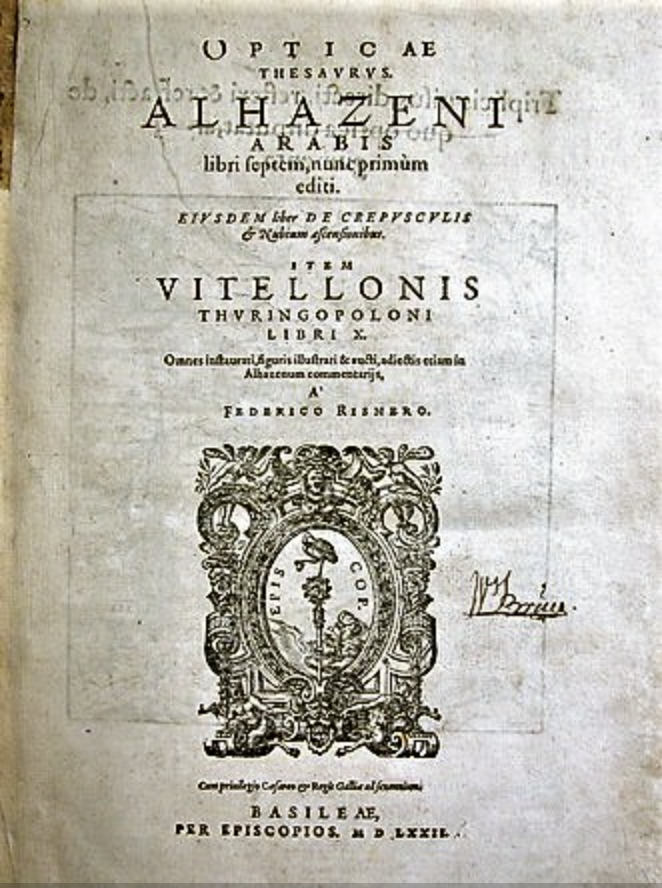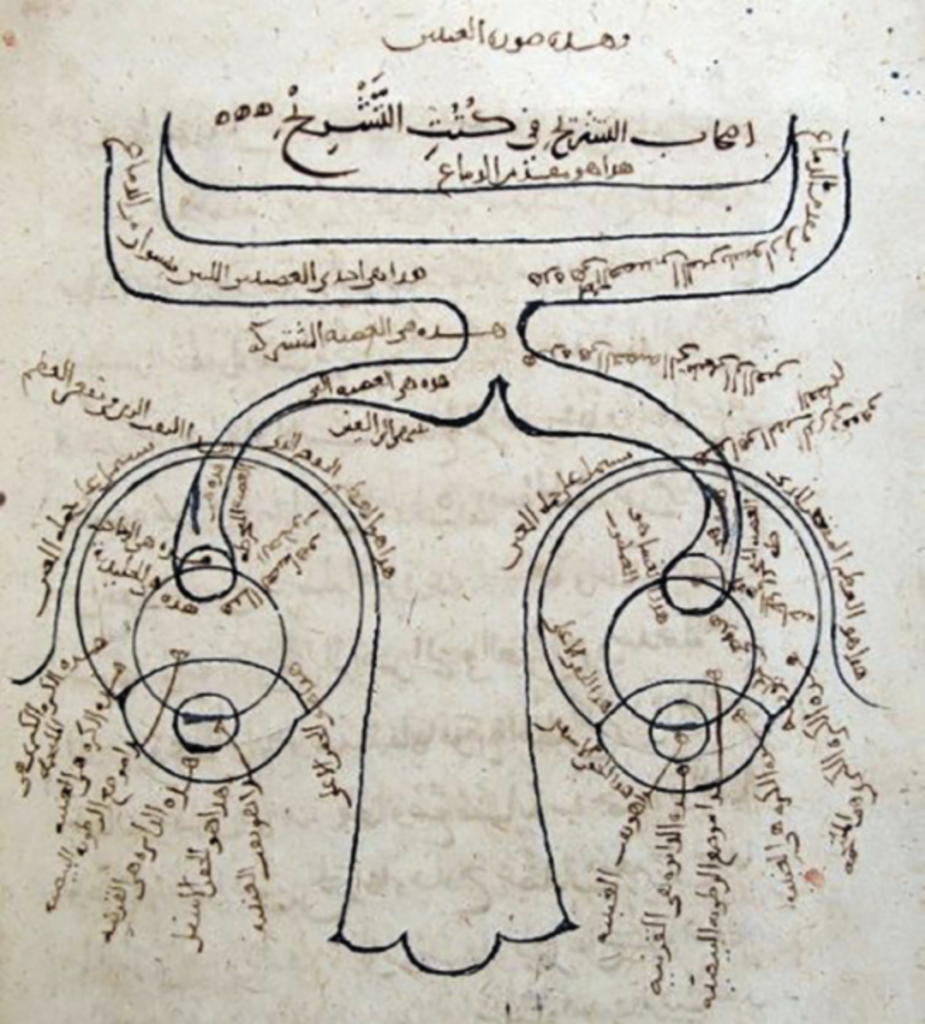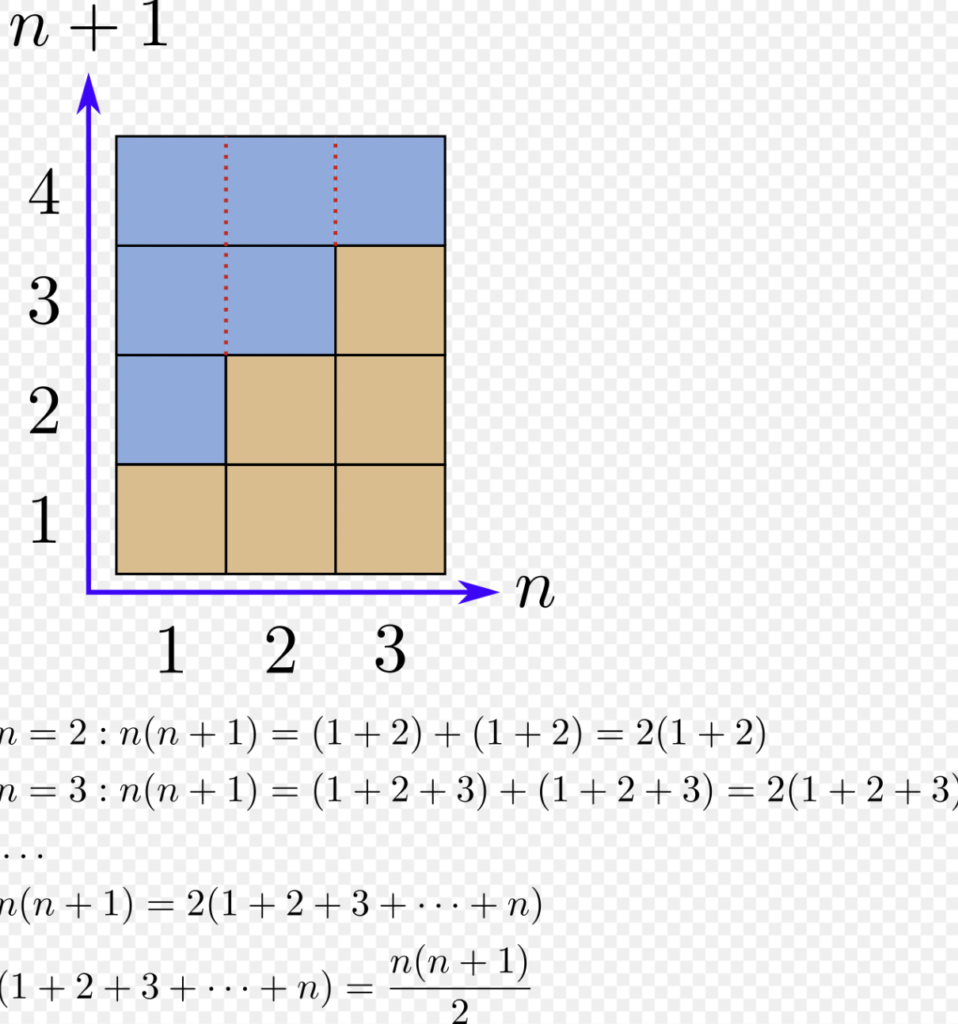Hasan Ibn al-Haytham, the World's 'First True Scientist'

By: Adam Abdel-Qader / Arab America Contributing Writer
Hasan Ibn al-Haytham, also known as al-Basry or Alhazen, was an Arab Muslim scientist during the Islamic Golden Age. As a scholar, he is constantly renowned for his achievements in mathematics, astronomy, optics, and physics.
His nickname, “al-Basry,” stems from his hometown of Basra, Iraq, and certainly sheds light on his deep-rooted Arab heritage. Moreover, his accomplishments contribute extensively to the significance of Arab American heritage month. He was a vital Arab scientist seeking significant advancements in human knowledge until his passing.
Background and Heritage:
Hasan Ibn al-Haytham lived from 965 to 1039 CE. Most of the discoveries he made in science happened while working in the House of Wisdom in Baghdad. The House of Wisdom was a renowned learning center during the Islamic Golden Age, where many scholars went to expand their knowledge.
While at the House of Wisdom, al-Basry had access to a wide range of ancient Greek, Roman, and other cultural texts. This supply of knowledge eventually led him to build upon the works of previous geniuses such as Ptolemy, Aristotle, and Euclid.
Eventually, his work led him to experiment with optics, mathematics, and physics. While developing his theories and conducting extensive experimentation, he began to make groundbreaking discoveries within optics. Precisely the nature of light and the workings of human eyes.
Putting his work into reflection illuminates the importance of his contributions to science, particularly Arab American heritage. During a month when the Arab American community’s achievements, scholarly accomplishments, and culture are given awareness, it is no wonder that al-Basry’s scientific foundational work is especially relevant.
It is vital to recognize the Arab pioneers of science, such as al-Basry, who dedicated their lives to developing human innovation and knowledge.

The Theory of Optics:
Al-Basry’s debatably most significant contribution to science was his theory of optics. His idea of optics was based on the principles of light and vision. After long trials of experimentation, his findings would eventually have a tremendous impact on physics and astronomy.
Al-Basry was the first scientist to identify that vision occurs directly when light rays enter the eye. Forming an image on the retina, a layer at the back of the eye sensitive to light. Therefore triggering a nerve impulse to the brain where a visual image is formed. This idea was a profound breakthrough in understanding the human eye and the precise science of optics. Undoubtedly, it paved the way for further research in the field and led to his name as the “father of modern optics”.
His breakthroughs also had extensive impacts on the area of astronomy. The findings he accumulated on the nature of light and its behavior laid a solid foundation for the development of telescopes. As know, telescopes have enabled astronomers to study our universe in immense detail. Alongside this, the invention has progressed the field of astronomy and astrophysics in ways no one once thought were possible.

Mathematics and Physics:
Al-Basry was broadened to more than just his work in optics. At the time, he was a significant player in mathematics and physics. He developed multiple mathematical concepts, such as using geometry to solve algebraic equations. His work in physics dealt with substantial contributions to the study of mechanics and motion. Including the laws of motion and the idea of inertia.

Scientific Method:
Many individuals aware of al-Basry’s contributions to the general field of science believe that his most significant discovery in all areas was his groundwork for developing the scientific method.
Al-Basry believed and viewed scientific knowledge as only obtainable through objective observation and examination. He theorized that scientific knowledge should be based on observation, experimentation, and deduction. This approach to scientific inquiry was groundbreaking during his time. It laid the undeniable foundation for developing the scientific method long after his passing. His approach to all fields of science was based on empirical evidence. With this, he believed that scientists should test scientific theories as rigorously as possible before coming to a definite conclusion. For this reason, scientists and historians refer to Hasan Ibn al-Haytham as the world’s “first true scientist.”
Aside from his work in mathematics, optics, physics, and the development of the scientific method, he also valued philosophy. His philosophical works explored the relationship between perception and objective reality, the existence of God, and the nature of knowledge. He was considered an accomplished and well-respected philosopher who wrote many treatises.
Apart from his research, he had an extensive collection of books and pieces he was the author of. His works covered all of his scientific and philosophical findings and ranged over 200 in total, but only 96 of them are currently known.
Conclusion:
Unquestionably, Hasan Ibn al-Haytham was one of the world’s first scientists. His contributions to various fields of science, particularly optics, and the scientific method, laid a highly beneficial foundation for modern scientific investigation. His work on the scientific method cannot go unnoticed, as our world would not look the same without its development from the past until now.
As we celebrate al-Haytham’s achievements during Arab American Heritage Month, we should also continue to look back at other profound individuals’ scientific and cultural contributions to the Arab and Arab American communities.








